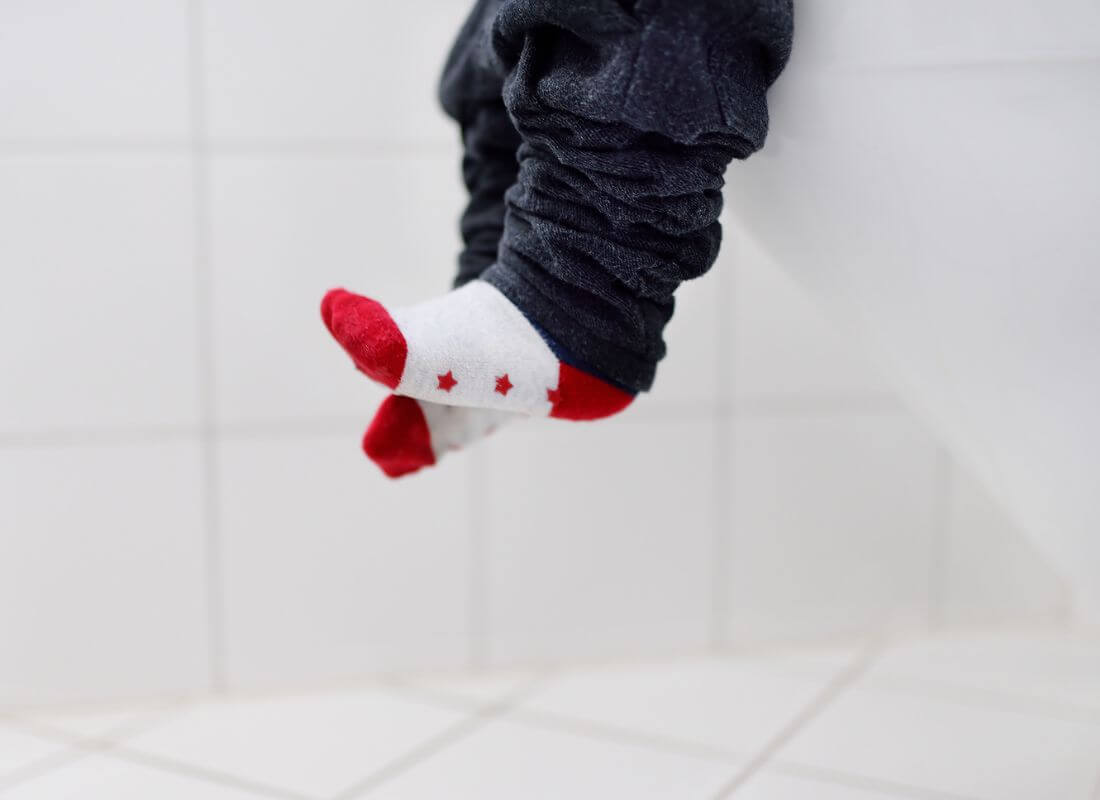
How to Help Your Child Overcome a Fear of Poo During Potty Training
|
|
Time to read 4 min
|
|
Time to read 4 min
For many families, potty training is a significant milestone. One common but often unspoken difficulty is a child’s fear of pooing. If your child is reluctant or anxious when it comes to doing a poo, you are not alone. This is more common than many parents realise, and with the right support, your child can learn to feel safe and confident when using the potty or toilet.
A fear of pooing often starts in the early stages of potty training. Children may suddenly become nervous, uncomfortable, or even distressed about using the potty for poo, even if they’re happily weeing without issue. In some cases, this fear can result in a pattern of “holding”, where a child actively avoids doing a poo, often by clenching or ignoring the urge to go.
This can quickly become a cycle: when children hold their poo, it builds up and may lead to constipation. When they eventually do go, the experience can be painful or uncomfortable, which reinforces their fear and causes them to hold it again the next time. This “holding-poo” cycle can become a habit if not gently addressed.
This fear is usually temporary and manageable with calm, consistent support and a few simple strategies. Understanding the reasons behind the behaviour, and knowing what helps, can make a big difference.
Here are some practical dos and don’ts to help your child feel more comfortable with pooing during potty training.
A balanced diet that includes fruit, vegetables, whole grains, and plenty of water can help keep stools soft and prevent constipation. Regular movement and exercise can also support healthy digestion.
If your child seems uncomfortable, hasn't pooed in a few days, or shows signs of withholding, speak to your GP. Prompt support can prevent long-term issues and make potty training far less stressful.
Talk about poo in a matter-of-fact, positive way. Read books together, describe what's happening in their body, and show them their poo so they can learn about it. You might even have an open-door policy when you go to the toilet yourself—this helps them see that everyone poos and it’s nothing to fear or hide.
Refer to it as “poo” rather than calling it “yucky” or “stinky.” Associating it with negative words can unintentionally make children feel ashamed or embarrassed about something completely normal.
Potty training can be emotionally charged. Let your child know it's okay to be nervous, and reassure them that their body is working just the way it should. Your calm, kind support can help ease their fear over time.
If your child asks for a nappy to poo in, and it helps them go, it’s okay to say yes. Many children find this familiar and comforting. You can always try again with the potty in a few days when they feel more confident.
If your child is using the toilet, ensure their feet are flat on a surface like a step stool. This helps with balance and allows them to relax. Using a potty naturally supports this posture by letting them keep their feet on the ground, which can make releasing easier.
If the process is becoming too stressful for your child (or you), it’s okay to pause potty training for a short time. Sometimes, a break is exactly what’s needed to reset and move forward more smoothly.
Avoid scolding or taking away privileges if your child refuses to poo. Pressure often backfires and can increase anxiety or cause further resistance.
Deliberately waiting for a child to give in and go can lead to more holding and worsening constipation. If you suspect holding behaviour, speak to your GP and consider offering a nappy temporarily if it helps your child go comfortably.
If the fear seems deep rooted, or if your child has experienced trauma or significant stress, don’t hesitate to speak to a GP or health visitor. They can help you access the right support.
Trying to force a child to sit on the toilet can reinforce their fear and damage trust. The goal is to create a calm, safe space where they feel in control.
It’s easy to wonder if you’ve done something wrong, but this is a very common experience during potty training. With love, patience, and support, most children overcome this stage in time.
Fear of pooing is nothing to be ashamed of—and it doesn’t mean potty training is failing. With gentle encouragement, realistic expectations, and a few simple adjustments, you can help your child build the confidence they need.
Stay patient, trust your instincts, and know that you’re not alone in this.

